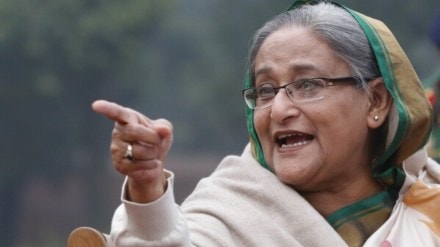Ousted Bangladeshi PM Sheikh Hasina has been awarded the death sentence in charges of crimes against humanity in the July-August 2024 student-led uprising by the Bangladesh International Crimes Tribunal.
After her ouster, Hasina has been living in exile in India since August 2024, shifting all gaze on India’s next move.
What is India going to do?
According to Sreeradha Datta, a professor specialising in South Asian Studies at Jindal Global University, the tribunal’s decision, while expected, will not lead to India extraditing her.
Speaking to Al Jazeera, she said, “Under no circumstances is India is going to extradite her…We saw in the last year and a half that relationships between India and Bangladesh are not at their best, and have been fragile at many occasions.”
In the past, officials in India’s Foreign Ministry have sidestepped questions on extradition, despite current Bangladeshi government’s several requests, pointing out that the former Bangladeshi premier had travelled to India for “safety reasons.”
“On the stay of the former prime minister (Hasina), I had earlier mentioned that she had come here at short notice for safety reasons, and she continues to be here,” Randhir Jaiswal, a spokesperson for the External Affairs Ministry, had earlier told reporters.
While India has an extradition treaty with Bangladesh, that treaty clearly states that no one can be sent back for political offences.
Hasina – a long standing Indian ally
India had sheltered Hasina for several years after many members of her family were assassinated in 1975.
Under her leadership as Bangladesh PM, India also shared strong diplomatic and trade ties with Dhaka, as Hasina was considered a valuable ally by Prime Minister Narendra Modi for her party Awami League’s commitment to a secular democracy, Al Jazeera reported.
On the economic front, deals of importance such as a 2017 deal struck between the Bangladeshi government and India’s Adani Group to supply power to Bangladesh from a coal-based $1.7 billion plant in India’s Jharkhand was also struck during Hasina’s tenure.
The 2024 uprising in Bangladesh, which began as a quota reform movement in quota rule of getting government jobs in early June 2024, escalated into a full-fledged student-led protest, which led to the deaths of at least 1,000 protesters in Bangladesh.
Hasina has denied all charges, calling them “biased and politically motivated”.
